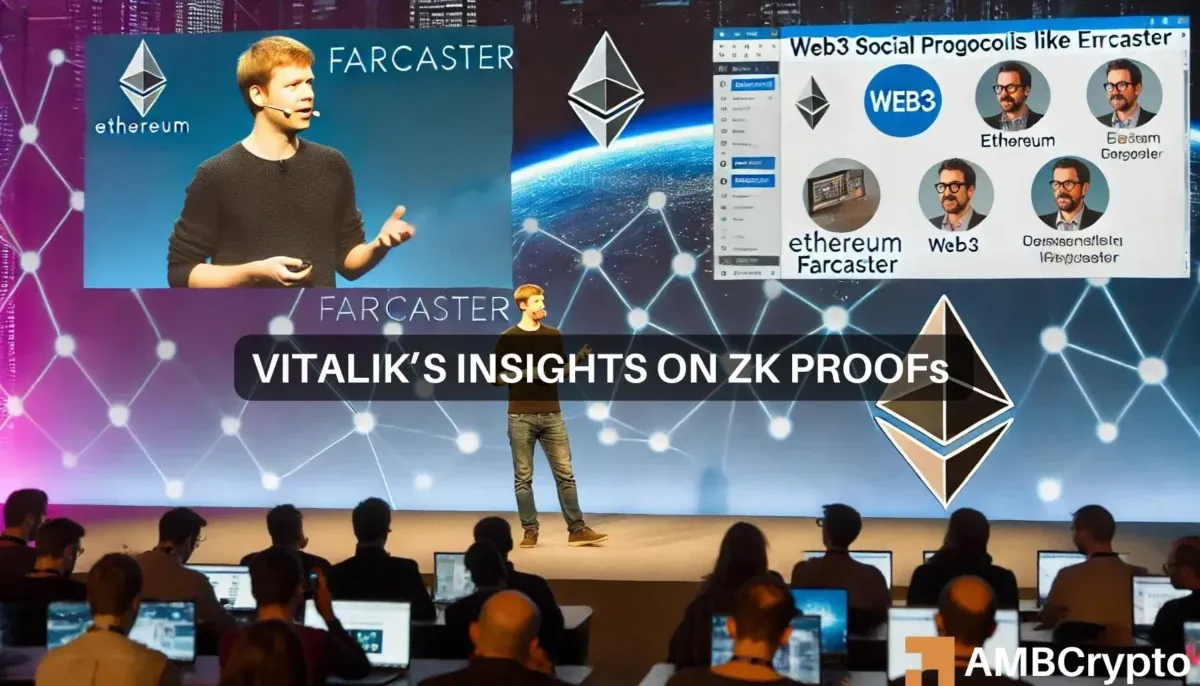Ethereum’s Vitalik Buterin advocates for ZK Proofs in Web3 social media
For perspective, ZK Proof is a cryptographic method that facilitates verification with limited data revelation. This has been perceived as a game changer, especially in decentralized social protocols hinged on privacy and trust
Ethereum [ETH] founder Vitalik Buterin is tipping Zero Knowledge (ZK Proof) potential to enhance social media platforms, especially on the privacy and scalability front.
For perspective, ZK Proof is a cryptographic method that facilitates verification with limited data revelation. This has been perceived as a game changer, especially in decentralized social protocols hinged on privacy and trust.
Buterin urges better user experience and ZK Proofs
Speaking on the sidelines of ETHCC Brussels, Buterin acknowledged that the potential of ZK Proofs is crucial to ensuring specialized content filtering. The technique empowers users to own their data and control third-party access.
However, the Ethereum co-founder also reiterated that above ZK Proof, the social protocols need a unique front-end experience. Buterin cited Farcaster, which is similar to X (formerly Twitter), and Flink, which flips X into a Reddit-like platform. He noted,
“I think the benefits of a more multi-community architecture and the ability of decentralized social to enable that is something I’m in favor of.”
Other panelists on the ETHCC [7], Chris Goes of Anoma, Shumo Chu of Nebra Labs, and Elias Tazartes from Kakarot, also gave insightful takes on ZK Proofs and Web3 socials.
For example, Chris Goes stated that ZK Proofs allow users more granular choices on what they want to reveal.
This is contrary to Web 2 socials, which aim to reveal information about users rather than conceal them. As a result, according to Goes, ZK Proofs goes beyond privacy and enables selective disclosure of information.
Apart from enhancing privacy, the ZK Proof technology also needs fewer computational resources to verify large datasets.
This makes it great for scalability, especially for social protocols handling massive transactions. In fact, Tazartes cited Web3 social building platform Lens Protocol’s new chain, which leverages ZK compression for scalability.
For his part, Shumo Chu of Nebra Labs viewed ZK Proofs and Web 3 socials as a great answer to the potential threat of being banned or shadow-banned from Web 2 social media sites.
“As the digital world evolves and more of our personal value gets tied up in it, the potential of being banned on a major platform can sort of “erase” you from the world.”
Decentralized socials stop such centralized actions from interfering with user ownership.
Despite the great potential of Web 3 socials, the attendees noted that more education is crucial for people to understand the benefits of data ownership and information control.
Apart from Farcaster, an X (former Twitter) equivalent, there are other Web 3 socials, from professional networks to news feed aggregators.






